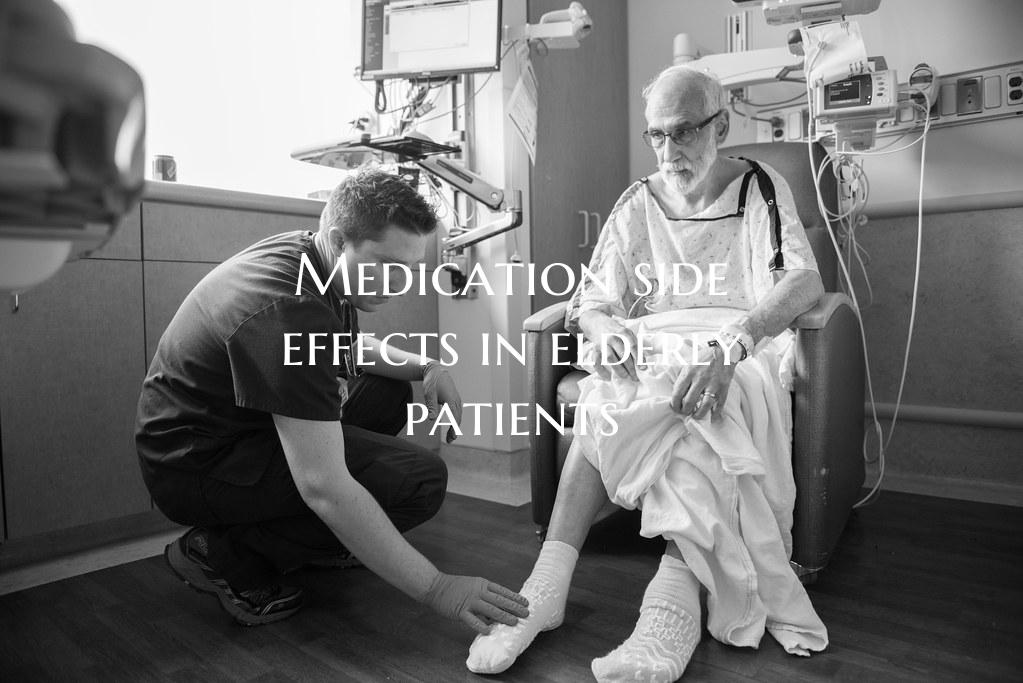
Medication side effects in elderly patients
As we age, our bodies go through a multitude of changes that can impact how medications are metabolized and tolerated. Elderly patients are often more vulnerable to experiencing side effects from medications due to age-related physiological changes and the presence of multiple chronic conditions. Understanding the potential side effects and knowing how to manage them is crucial in ensuring the well-being and safety of our elderly population.
### Factors Contributing to Medication Side Effects in the Elderly
1. Altered Metabolism: Aging can lead to a decrease in liver and kidney function, affecting the body's ability to metabolize and eliminate drugs efficiently. This can result in higher drug concentrations in the bloodstream, increasing the risk of side effects. 2. Polypharmacy: Elderly patients often take multiple medications for various chronic conditions, increasing the likelihood of drug interactions and adverse effects. The more medications someone takes, the greater the risk of side effects and complications. 3. Sensitivity to Drugs: With age, the body becomes more sensitive to certain medications, even at lower doses. What may have been well-tolerated in the past could now cause adverse reactions. 4. Cognitive and Physical Changes: Elderly patients may be more prone to confusion, dizziness, and falls as a result of medication side effects, impacting their overall quality of life and independence.
### Common Medication Side Effects in the Elderly
1. Gastrointestinal Issues: Many medications can cause stomach upset, constipation, or diarrhea in elderly patients. Ensuring proper hydration and dietary adjustments can help manage these symptoms. 2. Dizziness and Falls: Medications like blood pressure drugs, sedatives, and pain relievers can lead to dizziness, increasing the risk of falls and injuries. Adjusting dosage or timing of medication intake can help minimize this risk. 3. Cognitive Impairment: Certain medications, especially those with anticholinergic properties, can affect memory and cognitive function in elderly patients. Consulting with healthcare providers for alternative treatment options is essential. 4. Orthostatic Hypotension: Some medications can cause a drop in blood pressure upon standing, leading to lightheadedness and falls. Monitoring blood pressure regularly and implementing caution when changing positions can help prevent this side effect. 5. Renal and Liver Toxicity: Elderly patients are more vulnerable to kidney and liver damage from certain medications. Regular monitoring of kidney and liver function tests is crucial to detect and manage any potential issues.
### Managing Medication Side Effects in Elderly Patients
1. Regular Medication Reviews: Periodic reviews of an elderly patient's medication regimen by healthcare providers can help identify and eliminate unnecessary or potentially harmful drugs. 2. Open Communication: Encouraging elderly patients to report any new or worsening symptoms to their healthcare team is essential for prompt evaluation and management of medication side effects. 3. Individualized Care: Tailoring medication choices and dosages based on the patient's age, overall health status, and specific needs can help minimize side effects. 4. Monitoring and Follow-Up: Regular monitoring of vital signs, blood tests, and medication efficacy can help detect side effects early and adjust treatment accordingly. 5. Adherence Support: Providing clear instructions, pill organizers, and reminders can help elderly patients adhere to their medication schedule and reduce the risk of adverse reactions.
In conclusion, understanding the complexities of medication side effects in elderly patients is crucial for ensuring safe and effective treatment. By being aware of the potential risks, actively monitoring for side effects, and implementing individualized care strategies, healthcare providers can help elderly patients maintain their health and well-being while minimizing the burden of medication-related complications.